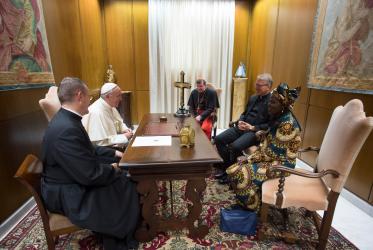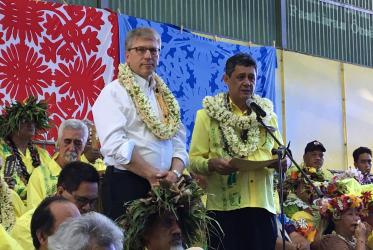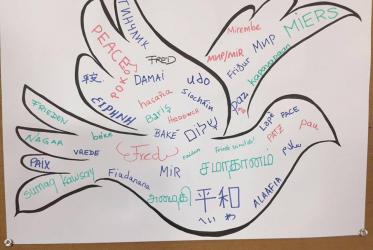Displaying 101 - 120 of 224
06 October 2017
WCC congratulates Nobel Peace Prize laureate ICAN
06 October 2017
Churches appeal for peaceful dialogue in Korea
28 September 2017
Dozens of countries sign nuclear weapons ban treaty
20 September 2017
Emily Welty: tide of hope for a world free from nuclear weapons
19 September 2017
WCC expresses support for Swedish ban on nuclear weapons
19 September 2017
WCC: In North Korea, use negotiation not confrontation
04 September 2017
Pope Francis, WCC leadership meet in Rome
24 August 2017
The whole world is praying for peace on the Korean Peninsula
11 August 2017
We are called to work on a peace built on trust, not power
04 August 2017
WCC general secretary visits the Pacific region
31 July 2017








